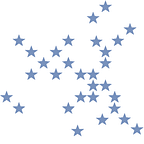Culture works… if you let artists do.
Claire Saillour
Culture works. And it works not only because, in the sometimes disappointing rhetorical frame of policy-making, it creates jobs and points of GDP-growth. Culture and arts are the place where societies reflect about themselves. To convince ourselves we only need to have a short glance at Tunisia or Ukraine right now, where artists are driving forces of change, telling new stories, building new subjectivities.
The arts do not only capture something from society no other actors could, but they make communities take a step aside and look at themselves, creating shared subjectivities aside of the realm of politics. They also remind us that culture is not something that is, it is something that is made, that we make.
It is something we should keep in mind if we want to take the European project seriously: like any cultural endeavour, it is something we do.
Unleashing the potential of culture in Europe would therefore certainly mean rethink the vertical fundament upon which most European cultural policies are built. It would also certainly mean to avoid two common mistakes in cultural policy, which limit the potential of a constructive relationship between politics and the arts everywhere.
The first mistake is of course, not to take arts and culture seriously for what they are and to ignore the long-term, symbolic, intersubjective dimension of community-building. To avoid this mistake would mean for example to rethink the economy-driven framework within which European cultural initiatives are conceived and justified.
The second mistake, a more insidious one, is to give the arts and cultural actors a responsibility in the “salvation” of our societies, the healing of wounded political systems they do not, and cannot bear. To avoid this mistake would mean rethink the normative goals of cultural policies tending to use artistic projects to reach immediate social and political goals. This would also suppose redrafting expectations towards the arts and cultural actors in a way which would take into consideration what the arts can do and which role artists play in society. To unleash the power of culture and the arts in Europe would mean to rethink cultural policies starting from the artist and the citizens.
Raise voices, build networks and learn from each other
Polis180’s modest endeavour toward this goal has been to invite cultural actors and citizens to gather in the last three months and to open up a space for discussion about the future of Europe’s Cultural Governance. As grassroots think tank, Polis180 aims at empowering especially young citizens to take part in the public sphere, formulate their opinion and raise their voice.
During the participative process of the last months, artists, cultural managers and citizens kept expressing, again and again the strong desire to learn from each other in Europe, to exchange, to solve common problems through the sharing of local practices and experiences, and ultimately to do things together. This desire has to be trusted — it is the fundament upon which Europe is made and upon which Europe’s Cultural Governance could be built. Not by reinventing the wheel but by strengthening networks, supporting cross-border exchanges also on a small scale and facilitating the process of being together in the making. To that end, a strong network of cities across Europe is absolutely a level of governance which could contribute to empower local actors and help foster a greater diversity of projects.
Claire Saillour is a Cultural Scientist and Cultural Manager. She is a Ph.D. candidate in Cultural Policy at the University of Hildesheim. Her work is rooted in her experience as former Cultural Manager for the French Institute in Stuttgart as well as in her time as Research Fellow at the Smithsonian Institution in Washington D.C. She is currently managing the European Campaign “jung & wählerisch” (young & picky) and is actively involved in the development of a new Cultural Policy research area, both within the Grassroots Think Tank Polis180.
